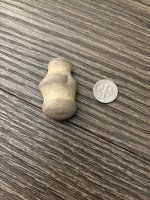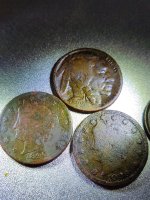Hi There,
I plan to move to Bulgaria at the end of this year from the UK.
I know that from a historical point of view it is full of history,but i was wondering if anyone knew of any storys of lost treasure, or any websites where i may start looking?
In England i have done lots of reserch, metal detecting and digs local to where i live,(wirral, cheshire and north wales) My claim to fame is finding the location of a roman villa. But when it comes to Bulgaria i have to start anew so any help will be good.
I have got two houses so far in two parts of the country so far, 1. near pleven,not far from the danube, 2. near the old capital of veliko tarnovo, if this helps.
I know that for years tombs in the hill sides have been plundered by locals just to make ends meet, so there must be lots to look for.
Does anyone know of how the country was used during the world wars?
Sorry for asking so much,
Many Thanks
Brian
I plan to move to Bulgaria at the end of this year from the UK.
I know that from a historical point of view it is full of history,but i was wondering if anyone knew of any storys of lost treasure, or any websites where i may start looking?
In England i have done lots of reserch, metal detecting and digs local to where i live,(wirral, cheshire and north wales) My claim to fame is finding the location of a roman villa. But when it comes to Bulgaria i have to start anew so any help will be good.
I have got two houses so far in two parts of the country so far, 1. near pleven,not far from the danube, 2. near the old capital of veliko tarnovo, if this helps.
I know that for years tombs in the hill sides have been plundered by locals just to make ends meet, so there must be lots to look for.
Does anyone know of how the country was used during the world wars?
Sorry for asking so much,
Many Thanks
Brian


 I knew someone would do that...
I knew someone would do that... 


